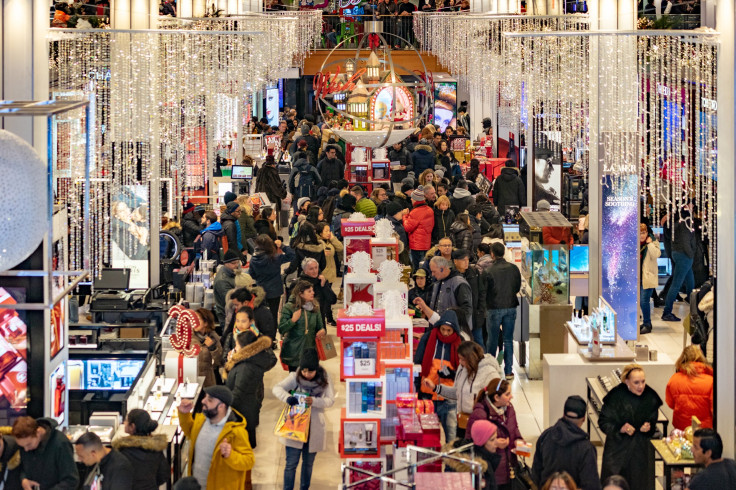What’s Open, Closed On Black Friday 2018? Banks, Public Transit, Stores

Black Friday, which is considered the start of Christmas shopping season in the United States, falls on Nov. 23 this year. The day after Thanksgiving has turned out to be one of the busiest shopping days of the year with several stores offering discounts and deals.
The day was neither a federal nor a state holiday, with most businesses running as usual. The U.S. Postal Service will remain open and so will the UPS and Fed Ex delivery. The stock markets that were closed for Thanksgiving will open Friday. However, the New York Stock Exchange and the Nasdaq will close early at 1 p.m.
Major pharmacies and stores such as Walmart, Walgreens and Rite Aid will have regular businesses. Some stores may also extend their opening hours leading to congestion on roads to popular shopping destinations.
New Jersey.com reported major banks including Citigroup, Bank of America, JP Morgan, Santander, Wells Fargo and TD Bank will remain open. New Jersey's Motor Vehicle Commissions offices will be open for regular operations including driver's license tests and vehicle registration.
Public Transit operation in several cities may differ. While the New Jersey Transit will operate on holiday schedule, the PATH and Philadelphia’s SEPTA services will run on modified weekday schedule.
Black Friday is a great day for serious shoppers who love good deals and discounts. Amazon is giving major discounts on their products including the echo devices, Fire TV and tablets. Kohl’s on the other hand is having discounts on camera, toys and home appliances including Dyson V7 Animal cored-free vacuum and K55 classic coffee maker.
History.com reported the term “Black Friday” was first applied in 1869 and had nothing to do with holiday shopping but referred to financial crisis, specifically the crash of the U.S. gold market.
However, the most commonly used narrative links to the retailers. According to the narrative, the stores would gain a lot of profit on next day of Thanksgiving after an entire year of loss. This was because the shoppers would end up spending a lot of money on discounted merchandise. The story behind the origin of the day was however inaccurate.
Another myth claimed in 1800s, southern plantation owners could buy slaves at a discount rate on the day after Thanksgiving and hence the name “Black Friday.” This too was not true.
The real story behind the Black Friday dated back to 1950s when Philadelphia police used the term to describe the chaos that took place a day after Thanksgiving. Several shoppers and tourists would gather a day before the big Army-Navy football game that was held on that Saturday every year.
The police were to work extra-long shifts dealing with the additional crowds and traffic and were not allowed to take day off. Apart from that, the shoplifters would also take advantage of crowd in store, adding more problems to the officials.
© Copyright IBTimes 2025. All rights reserved.





















